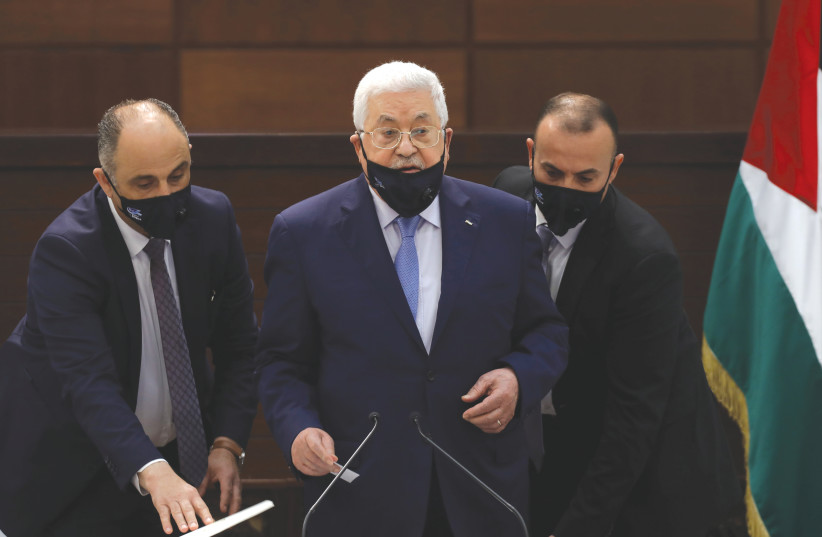It appears that the Palestinian leadership, in addition to its widely acknowledged repressive and corrupt dictatorial regime and its penchant for illegally and systematically inciting, financing and glorifying terror, is now venturing into the international legal field.
It is regrettably attempting to further extend its destructive influence among the only milieu that still, naively, takes it seriously – the international community.
The Palestinian leadership is not satisfied with having abused, manipulated and politicized major United Nations bodies such as the UN General Assembly, the UN Human Rights Council, the UN’s Educational, Scientific and Cultural Organization (UNESCO) and the International Criminal Court (ICC).
It has now set its sights on targeting the UN’s major and highly respected juridical body, the Hague-based International Court of Justice (ICJ). This is a frantic, misguided and hypocritical attempt to turn that body into one more Israel-bashing international institution.

Palestinian leadership directed to the court against Israel
In addition to their regular, annual shopping list of false and flawed political allegations directed to the court against Israel, the Palestinians are now requesting that the court, by means of a resolution that they initiated in the UN General Assembly’s Special Political and Decolonization Committee to weigh the legal consequences of prolonged annexation of what they claim to be Palestinian territory.
This is despite the fact that there has never been any internationally accepted legal determination that there exists Palestinian territory, as such. Similarly, this question remains an agreed negotiating issue by the Palestinians themselves, pursuant to the internationally endorsed Israeli-Palestinian Oslo Accords (1993-95).
In addition, the Palestinian leadership is also asking the Court to examine Israel’s alleged crime of altering the demographic composition, character and status of the Holy City of Jerusalem, claiming the city to be solely Palestinian.
But more curiously, in this request to the world court, they are attempting to invent what they believe to be a new, curious international status of prolonged occupation. They are asking the court to determine the extent to which such a non-existent status of prolonged occupation has legal consequences for states and the UN.
In fact, no such status is recognized by international law.
Even the International Committee of the Red Cross (ICRC), which is universally acknowledged to be the ultimate arbiter of what constitutes international humanitarian law, has never determined a time limit for the occupation of territory.
To the contrary, a major ICRC study involving a series of meetings by international legal experts in the field of international humanitarian law, titled “Occupation and Other Forms of Administration of Foreign Territory,” concluded in 2012 that “determining precisely when an occupation has ended is deemed to be a very difficult task.”
This study went on to recognize that nothing under International humanitarian law would prevent occupying powers from embarking on long-term occupation.
It is thus puzzling how those states that enabled the adoption of such a request by the UN General Assembly’s Special Political and Decolonization Committee could have supported such an obviously flawed and manipulative resolution.
Clearly, observation of international norms and customs in administering territory acquired during armed conflict may well be legitimate questions for judicial review, if dealt with in a non-discriminate and unbiased manner.
One must assume and trust that the ICJ, a respected international juridical body, will not permit its respected stature to be politically prejudiced, abused and substantively manipulated by this new, irresponsible Palestinian political ploy in the UN General Assembly.
But by the same token one may wonder when, if ever, the international community that supported such an initiative will come to the realization that it itself is being abused and manipulated by an irresponsible and unethical Palestinian leadership intent on using every means possible, not to achieve peace, normalization and good neighborly relations but rather to demonize, delegitimize and criminalize Israel.
The writer has served as a legal adviser to Israel’s Foreign Ministry and as Israel’s ambassador to Canada.
